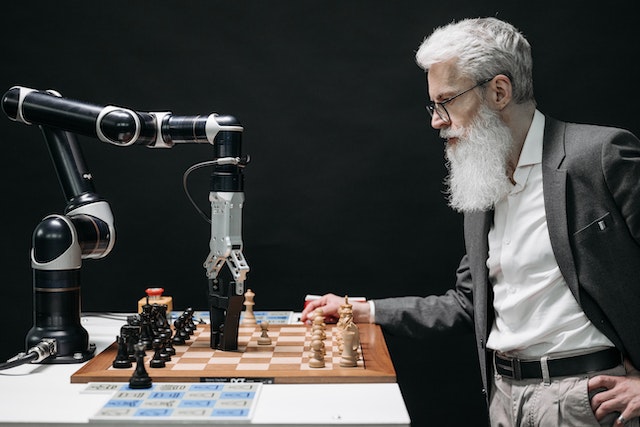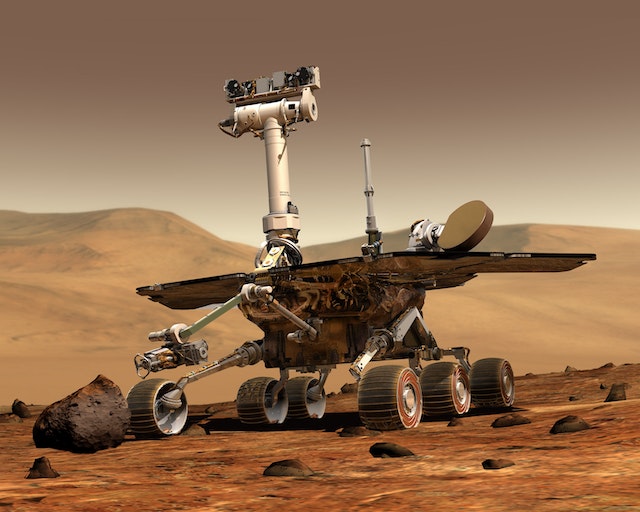
Artificial intelligence is a phrase we’re hearing more and more of in our everyday lives, and it’s taking center stage in more than one way.
With this new growth also have some concerns that it will eventually end up replacing human intelligence, and while it’s understandable why this concern has come about, it simply is not the case.
Keep reading below to learn more about how AI can assist human intelligence instead of replacing it altogether.
Before diving into how it can assist us instead of replacing human intelligence, it’s worth touching on what artificial intelligence or AI is.
AI can be found in a range of things, from smart assistants in your phones to self-driving cars, the things you can do with ChatGPT and inventory management. These are just a handful of areas where AI has been and will continue to be utilized in the coming years.
These complex computer systems are high-speed and incredibly good at what they do, and also extremely fast. Room for error is close to zero, and it cuts down on hours, meaning you can be more productive and efficient.
Assisting decision-making
Although there are fears of AI replacing human intelligence, what if it could assist and be used as a tool that would benefit us?
As we mentioned before, one of AI’s most notable advantages is its capacity to sift through and process extensive amounts of data both quickly and accurately. We believe this skill could also be utilized for human decision-making as well.
For instance, if we consider AI within the business framework, it could be used to analyze consumer data, and that would then inform the next steps forward when it comes to products and services for a particular company to generate more revenue and make it more appealing to customers.
Similarly, in a medical setting, AI could be operated to examine medical records and pick out any patterns that the human eye may have missed, all done in a much shorter time frame, meaning that decisions moving forward for a patient can be much more informed and targeted.
Aside from targeted decision-making, AI can also help reduce bias when it comes to making decisions. Cognitive biases are something that all humans are prone to, and they can affect our judgment on a subconscious level, even if we don’t realize it.
In contrast to that, the fact that AI doesn’t have any cognitive biases means it is as objective as possible and will analyze data in that very same fashion – therefore helping humans make decisions that are as accurate and as reasonable as possible.

Enhancing Creativity
Artificial intelligence has also been used in the entertainment and creative fields such as writing, music, and even art, and there have been expressed concerns that AI will replace humans in these fields.
However, AI can be used to work in our favor here as well. While you may not prefer creative pieces to be produced by AI, it is more than reasonable to suggest that they can be used to generate new ideas and inspiration to work from that still has your signature style written all over it.
Musicians, for instance, could use AI to create new compositions and sounds that they use as a springboard to develop their own ideas from. Artists could do the same with a piece they are working on and use AI to decide how to proceed. That still gives you all the control with a bit of AI help.
Like an artist working on a creative piece, AI can also help us overcome creative blocks. How many times have you needed an idea for an essay at college or needed to brainstorm a new pitch for work and have come up completely blank? Imagine generating new ideas and prompts with software such as ChatGPT.
Similar to assisted decision making, AI could come in handy for artists once again by analyzing the sort of music that consumers are listening to after theirs, and could inform what the next tone or style of a particular song will look like, that will be of interest to listeners.
Empowering Learning
The possibilities of using AI to assist and enhance human learning are endless, and by utilizing this, it can help individuals learn in unique and productive ways, making the whole process effective and efficient.
No two people learn in the same way, and to suggest one revision technique for two individuals won’t gather the same results either.
AI could help to personalize that experience and analyze individual learning styles to adapt the content in a digestible way for each person.
Real-time feedback is also a possibility for AI, meaning that by knowing what your target is for a particular skill you are learning, you can hone and tailor your studying accordingly.
Instead of replacing human intelligence, AI could also help make education much more accessible globally. AI-powered tools such as ChatGPT or platforms such as Notion can mean that you can organize your work a lot better, and with AI monitoring your patterns, it can even predict future events or timetables.
Another sector of education that AI is especially helpful in is when it comes to all things languages. No matter what language you speak, chances are that AI can translate material into whichever language you prefer and can even promote cultural diversity as so much more material becomes accessible, from articles to even videos.
As you can see, AI’s benefits are vast and beyond what we can anticipate reasonably into the future, and can benefit us from how we work even to how we live.
The idea that AI could ‘take over’ or ‘replace’ human intelligence is a concern that people may have; however, the potential of AI is so much greater that it should be considered as a tool or an assistant that can be tailored to suit your needs.
